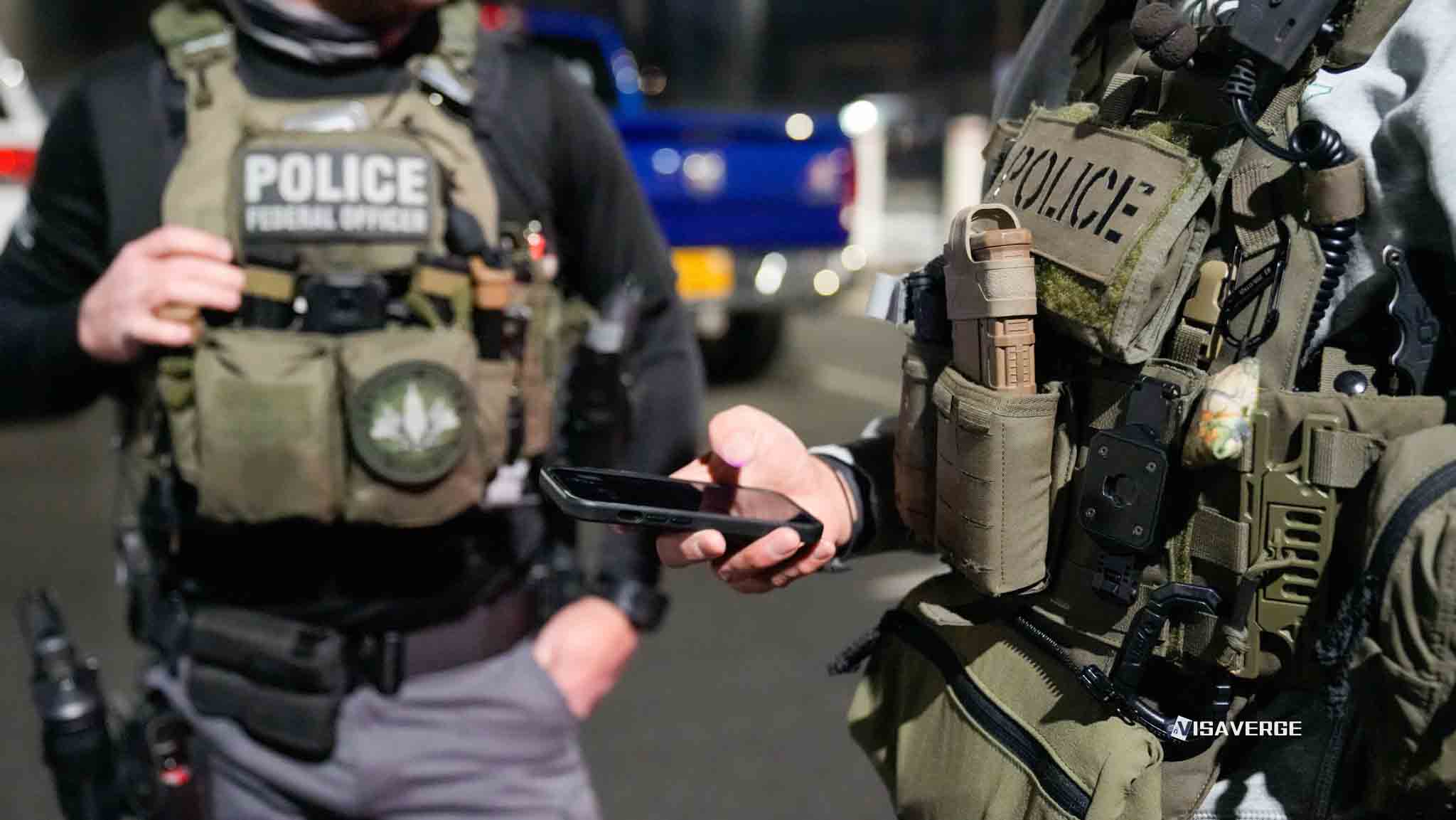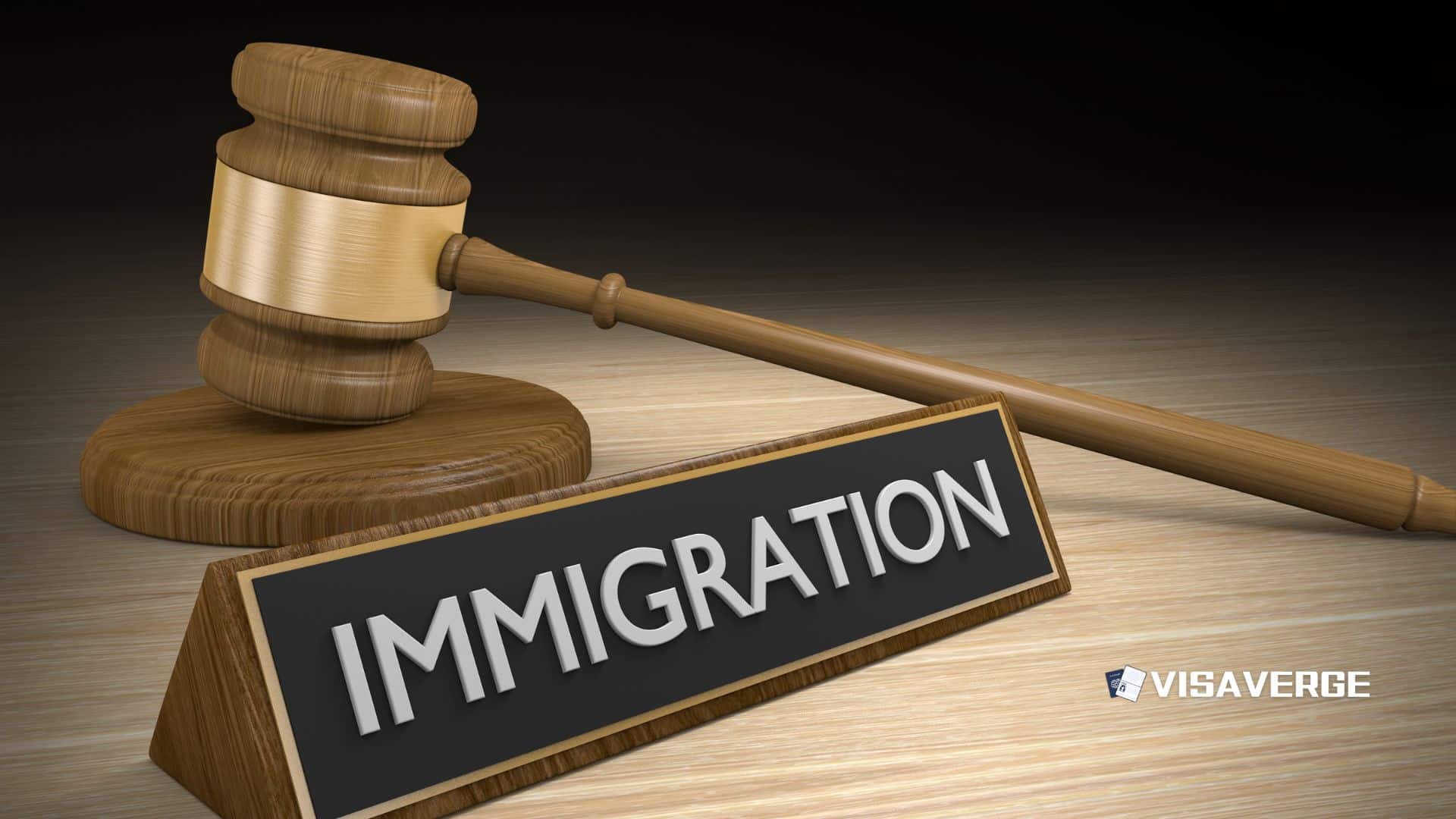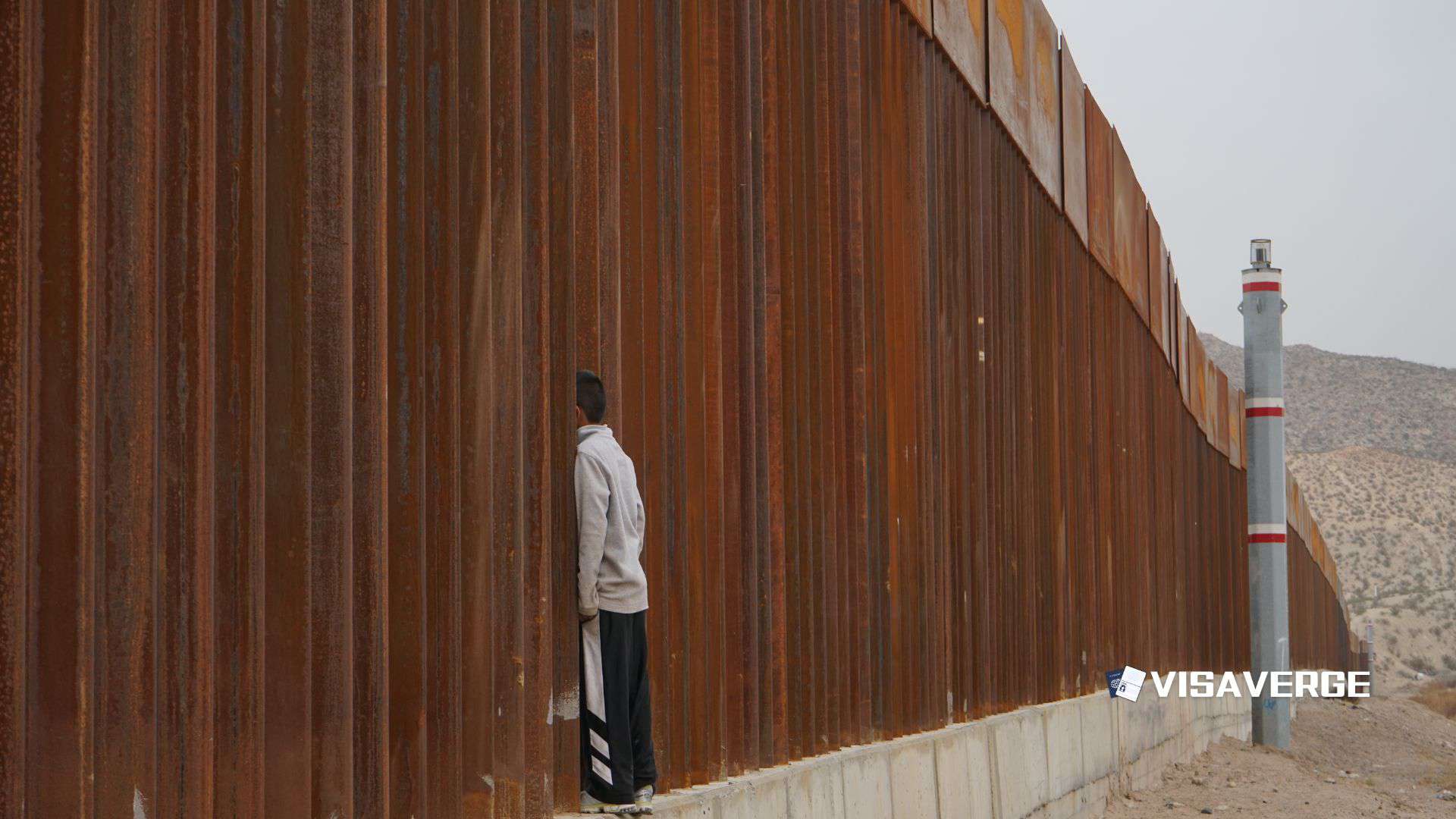Key Takeaways
• No federal raid occurred at New Orleans drainage project as of May 29, 2025.
• ICE arrested 11 unauthorized workers at Port of Lake Charles in March 2025.
• Louisiana expands 287(g) agreements; NOPD restricted from immigration enforcement by consent decree.
Federal Agents, New Orleans Drainage Project, and Immigration Enforcement: What’s Really Happening?
Federal agents and immigration enforcement actions often make headlines, especially when they involve large worksites or public projects. In recent weeks, rumors have spread about a possible federal raid targeting a New Orleans drainage project. However, as of May 29, 2025, there are no official reports or breaking news confirming any such raid. Instead, the most recent immigration enforcement activity in Louisiana focused on a different location: the Port of Lake Charles, where federal agents arrested 11 unauthorized workers in March 2025. This article explains what’s really happening with immigration enforcement in Louisiana, how these operations work, and what it means for workers, employers, and the community.

What Happened: No Raid on New Orleans Drainage Project
Despite rumors, no federal immigration enforcement raid has taken place at a New Orleans drainage project in the past week. The most recent, confirmed action by federal agents was at the Port of Lake Charles on March 13, 2025. In that operation, Immigration and Customs Enforcement (ICE) agents, working with other federal and state agencies, arrested 11 workers from Mexico 🇲🇽, Nicaragua 🇳🇮, and Ecuador 🇪🇨 who did not have legal permission to work in the United States 🇺🇸.
This operation was part of a larger effort to target illegal employment at important infrastructure sites. However, it did not involve any New Orleans drainage project. According to analysis from VisaVerge.com, these types of enforcement actions are becoming more common in Louisiana, but they are focused on locations where federal agents have gathered evidence of unauthorized employment.
How Federal Agents Conduct Immigration Enforcement
Immigration enforcement at worksites is a careful, multi-step process. Federal agents, including ICE, the FBI, and the Bureau of Alcohol, Tobacco, Firearms and Explosives (ATF), work together with state and local law enforcement. Here’s how a typical operation unfolds:
- Intelligence Gathering: Federal agents collect information about possible illegal employment. This can include tips from the public, reports from other agencies, or evidence found during other investigations.
- Planning and Coordination: Agencies plan the operation, making sure they have the right warrants and that everyone involved knows their role. Safety for both officers and workers is a top priority.
- Execution: Agents arrive at the worksite, check workers’ identities, and review documents to see if everyone is allowed to work in the United States 🇺🇸.
4. Arrest and Processing: If agents find workers who do not have legal permission to work, those individuals are arrested. They are then processed for possible removal from the country. Employers may also be questioned and investigated. - Follow-Up: After the operation, ICE may continue to investigate the employer for other possible crimes, such as human trafficking, document fraud, or worker exploitation.
These steps are designed to make sure that only people with legal permission are working at important sites, and that employers are following the law.
Why Immigration Enforcement Focuses on Critical Infrastructure
Federal agents often target places like ports, power plants, and large construction projects because these sites are important for public safety and the economy. If unauthorized workers are found at these locations, it can raise concerns about security and fair labor practices.
- National Security: Critical infrastructure sites are important for the country’s safety. Federal agents want to make sure only trusted, authorized workers have access.
- Worker Protection: Unauthorized workers are sometimes at risk of being exploited by employers. By enforcing immigration laws, federal agents hope to protect all workers from unsafe or unfair conditions.
- Fair Competition: When employers hire unauthorized workers, it can create unfair competition for businesses that follow the law.
The Role of 287(g) Agreements in Louisiana
One important policy tool in Louisiana is the 287(g) agreement. This is a program that allows local law enforcement officers to perform certain immigration enforcement duties under the supervision of federal agents. In recent months, Louisiana has expanded its use of 287(g) agreements, with support from Governor Jeff Landry.
- What is a 287(g) Agreement?
A 287(g) agreement is a partnership between ICE and local law enforcement. It lets local officers help with immigration enforcement, such as checking the immigration status of people arrested for other crimes. - Why is Louisiana Expanding 287(g)?
State officials believe that involving local law enforcement will help catch more unauthorized immigrants and improve public safety. - Limitations in New Orleans:
In New Orleans, the police department (NOPD) is under a consent decree—a legal agreement with the federal government that limits what officers can do. Under this agreement, NOPD officers are not allowed to take action based on someone’s immigration status. This means that, even with 287(g) agreements in place elsewhere, New Orleans police have limited involvement in immigration enforcement.
Recent Enforcement Actions: Facts and Figures
- March 13, 2025: ICE led a worksite enforcement operation at the Port of Lake Charles, arresting 11 unauthorized workers from Mexico 🇲🇽, Nicaragua 🇳🇮, and Ecuador 🇪🇨.
- No recent raids at New Orleans drainage projects.
- Multi-Agency Operations: Since August 2024, the NOPD Special Operations Division has worked with federal agencies like ATF and Homeland Security Investigations (HSI) to target criminal organizations. These efforts have led to six federal indictments in 2024, with more investigations ongoing.
Key Stakeholders and Their Roles
Several agencies and officials play important roles in immigration enforcement in Louisiana:
- ICE (Immigration and Customs Enforcement): Leads most worksite enforcement operations and partners with other agencies.
- FBI: Assists with investigations and provides intelligence.
- ATF: Works with local police to target criminal organizations.
- NOPD (New Orleans Police Department): Works with federal partners on criminal cases but is restricted from immigration enforcement under the consent decree.
- Governor Jeff Landry: Supports expanding local law enforcement’s role in immigration enforcement through 287(g) agreements.
- Joshua Jackson (ATF New Orleans Field Division Special Agent in Charge): Has emphasized the value of embedding federal agents with local officers to share information and resources.
How Worksite Enforcement Affects Workers and Employers
Immigration enforcement at worksites has real effects on both workers and employers:
For Workers
- Risk of Arrest and Deportation: Unauthorized workers face the risk of being arrested, detained, and possibly removed from the United States 🇺🇸.
- Fear and Uncertainty: Increased enforcement can create fear in immigrant communities. Some people may avoid reporting crimes or seeking help from police because they worry about their immigration status.
- Worker Exploitation: Some unauthorized workers are paid less or forced to work in unsafe conditions because they fear being reported to immigration authorities.
For Employers
- Legal Requirements: Employers must verify the identity and work eligibility of every worker using Form I-9. Failing to do this can lead to civil and criminal penalties.
- I-9 Inspections: ICE uses I-9 inspections to check if employers are following the law. These inspections can lead to fines or even criminal charges if employers knowingly hire unauthorized workers.
- Business Impact: Enforcement actions can disrupt business operations, especially if many workers are arrested or if the company faces penalties.
Community Impact and Concerns
Immigration enforcement doesn’t just affect workers and employers—it also impacts the wider community:
- Reduced Cooperation with Police: When people fear immigration enforcement, they may be less likely to report crimes or cooperate with investigations. This can make communities less safe.
- Economic Effects: Many local economies rely on immigrant labor, especially in industries like construction, agriculture, and hospitality. Aggressive enforcement can lead to labor shortages and higher costs for businesses.
- Family Disruption: When workers are arrested and removed, families can be separated, causing emotional and financial hardship.
Advocacy groups argue that these negative effects show the need for comprehensive immigration reform, rather than relying only on enforcement.
Policy and Legal Background
Immigration Enforcement in Louisiana
Louisiana has a long history of cooperation between federal and local law enforcement on immigration issues. In recent years, there has been an increase in worksite enforcement operations and a push to expand 287(g) agreements.
NOPD Consent Decree
The New Orleans Police Department operates under a consent decree—a legal agreement with the U.S. Department of Justice. This decree was put in place after a federal investigation found civil rights violations. Under the decree, NOPD officers cannot take action based on someone’s actual or perceived immigration status. This limits their ability to participate in immigration enforcement, even as the state expands 287(g) agreements elsewhere.
Federal Task Forces
Multi-agency task forces, such as the Homeland Security Task Force Louisiana, help coordinate enforcement efforts across federal, state, and local agencies. These task forces focus on both immigration enforcement and other criminal investigations.
What Experts and Stakeholders Say
Federal Perspective
ICE and FBI officials say that worksite enforcement is important for national security, protecting workers, and making sure everyone follows the law. They argue that these operations help prevent worker exploitation and keep critical infrastructure safe.
Local Law Enforcement
Local agencies like NOPD see value in working with federal partners to target criminal organizations. However, they also recognize the limits placed on their involvement in immigration enforcement by local policies and the consent decree.
Advocacy Groups
Immigrant rights groups warn that aggressive enforcement creates fear, breaks up families, and hurts local economies. They call for comprehensive immigration reform to address the root causes of unauthorized migration and to provide legal pathways for workers.
Employers
Businesses face more scrutiny and possible penalties for not following employment verification rules. Some employers say they need clearer guidelines and more support for hiring workers legally.
Step-by-Step: What Happens During a Worksite Enforcement Operation
To help readers understand what to expect, here’s a simple breakdown of how a typical worksite enforcement operation works:
- Step 1: Intelligence Gathering
Federal agents collect information about possible illegal employment at a worksite. - Step 2: Planning
Agencies plan the operation, making sure they have the right legal documents and safety measures. - Step 3: Execution
Agents visit the worksite, check workers’ documents, and interview people as needed. - Step 4: Arrest and Processing
Unauthorized workers are arrested and processed for possible removal. Employers may also be questioned. - Step 5: Follow-Up
ICE may continue to investigate the employer for other crimes and to make sure the company follows employment laws.
For more details on employer responsibilities and worksite enforcement, visit the official ICE Worksite Enforcement page.
Looking Ahead: What’s Next for Immigration Enforcement in Louisiana?
With the expansion of 287(g) agreements and continued focus on worksite enforcement, Louisiana is likely to see more immigration enforcement actions in the coming months. State officials may push for even greater involvement of local law enforcement, while advocacy groups will continue to call for reform and protections for immigrant communities.
Employers should make sure they are following all employment verification rules, and workers should know their rights and where to seek help if needed.
Official Contacts for More Information
If you have questions or need help, here are some official contacts:
- ICE New Orleans Field Office:
1250 Poydras Street, Suite 1800, New Orleans, LA 70113
Phone: (504) 599-7800
Website: ice.gov - NOPD Public Affairs Division:
Email: [email protected]
Website: nopdnews.com - FBI New Orleans Field Office:
2901 Leon C. Simon Blvd, New Orleans, LA 70126
Phone: (504) 816-3000
Website: fbi.gov
Practical Takeaways
- No recent federal raid has targeted a New Orleans drainage project.
- The most recent enforcement action was at the Port of Lake Charles in March 2025, with 11 arrests.
- Louisiana is expanding 287(g) agreements, but NOPD officers are restricted from immigration enforcement.
- Employers must use Form I-9 to verify worker eligibility.
- Immigration enforcement can affect workers, employers, and the wider community.
- Advocacy groups continue to call for comprehensive immigration reform.
Staying informed and following the law are the best ways for both workers and employers to protect themselves as immigration enforcement evolves in Louisiana.
Learn Today
ICE → Immigration and Customs Enforcement, a federal agency enforcing immigration laws and worksite investigations.
287(g) agreement → A partnership allowing local law enforcement to perform immigration enforcement under federal supervision.
Consent decree → A legal agreement restricting New Orleans Police Department from acting based on immigration status.
Worksite enforcement → Federal investigation and actions targeting illegal employment at critical infrastructure work locations.
Form I-9 → A form employers must use to verify employee identity and work authorization legally.
This Article in a Nutshell
Rumors of a federal raid at a New Orleans drainage project are false. Recent immigration enforcement focused on Lake Charles, Louisiana, targeting unauthorized workers. Louisiana expands local immigration enforcement partnerships but New Orleans police face restrictions under a consent decree limiting their immigration enforcement role.
— By VisaVerge.com













